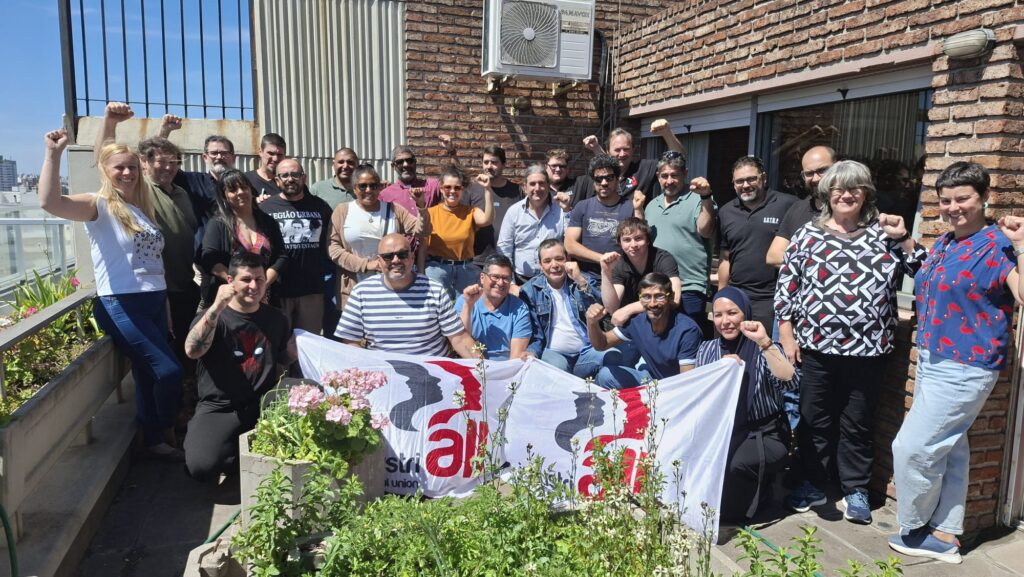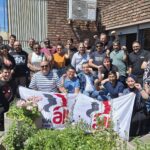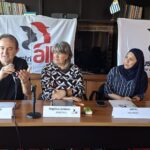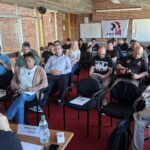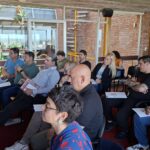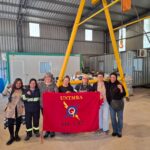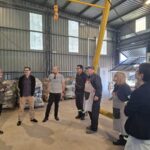Read this article in:
English
28 October, 2025Industry 4.0, automation and the future of work were the focus of recent discussions between representatives of Uruguayan manufacturing unions and Germany’s IG Metall, with those present agreeing that global unity and solidarity would be needed to ensure fairer working conditions in future.
Representatives of IndustriALL Global Union affiliates in Uruguay – the National Union of Metal and Allied Workers (UNTMRA), the Tanners' Union (UOC) and the Federation of Paper, Pulp and Cardboard Workers (FOPCCU) – along with leaders from Uruguay’s PIT-CNT Confederation of Manufacturing Unions (CSI) and IG Metall Germany all took part in the day-long meeting. Their aim was to analyse collective strategies and encourage international cooperation in the response to the challenges brought by technological, productive and geopolitical changes in both Europe and Latin America. The event was held at IndustriALL regional office in Montevideo, with presentations by Angélica Jiménez Romo, an IG Metall delegate; María Losada, from Germany’s international cooperation agency, GIZ; and IndustriALL regional secretary Marino Vani.
Jiménez Romo explained that Germany has a robust union model, with a small number of unions covering a large number of members and subsectors, an approach that makes the unions stronger. When it comes to labour-market changes, she stressed that shorter working hours should be made possible through technological advancements and not by taking away workers’ rights.
In terms of the future of work and Industry 4.0, she argued that machines must work for people and that wealth must be more evenly distributed. It was also necessary to rethink the production and union model in response to digitalization.
Danilo Dárdano, CSI chairman, presented a report on Uruguayan trade unions and the tough manufacturing landscape in which they operate, with factory closures and declining production. In addition, he spoke about the recommendations that the CSI is promoting alongside the Government in order to revive the sector. Union representatives also stressed the need to diversify production.
Prior to the meeting, the German delegation and IndustriALL representatives met with workers at a UNTMRA foundry in the Industrial Technology Park in Cerro – a working class neighbourhood grappling with social issues. Workers (50 per cent of them women and 50 per cent men) who had lost their jobs are now recycling old lighting equipment, converting it into aluminium ingots for the manufacture of various parts and components.
Jiménez Romo said that the meeting had been extremely useful:
“The world is changing so much and it’s important to get first-hand information so that we have a clear understanding of how to move forward in supporting the working class. Our two regions have very close cultural ties and we must take advantage of them in seeking common strategies.”
IndustriALL Latin America regional secretary, Marino Vani, summed up by saying:
“We’ve managed to build a stronger identity among our affiliates in Uruguay, in cooperation with workers in the German metalworking industry. As trade unions, we’re now stronger and better equipped to take on the current and future challenges of the world of work.”
